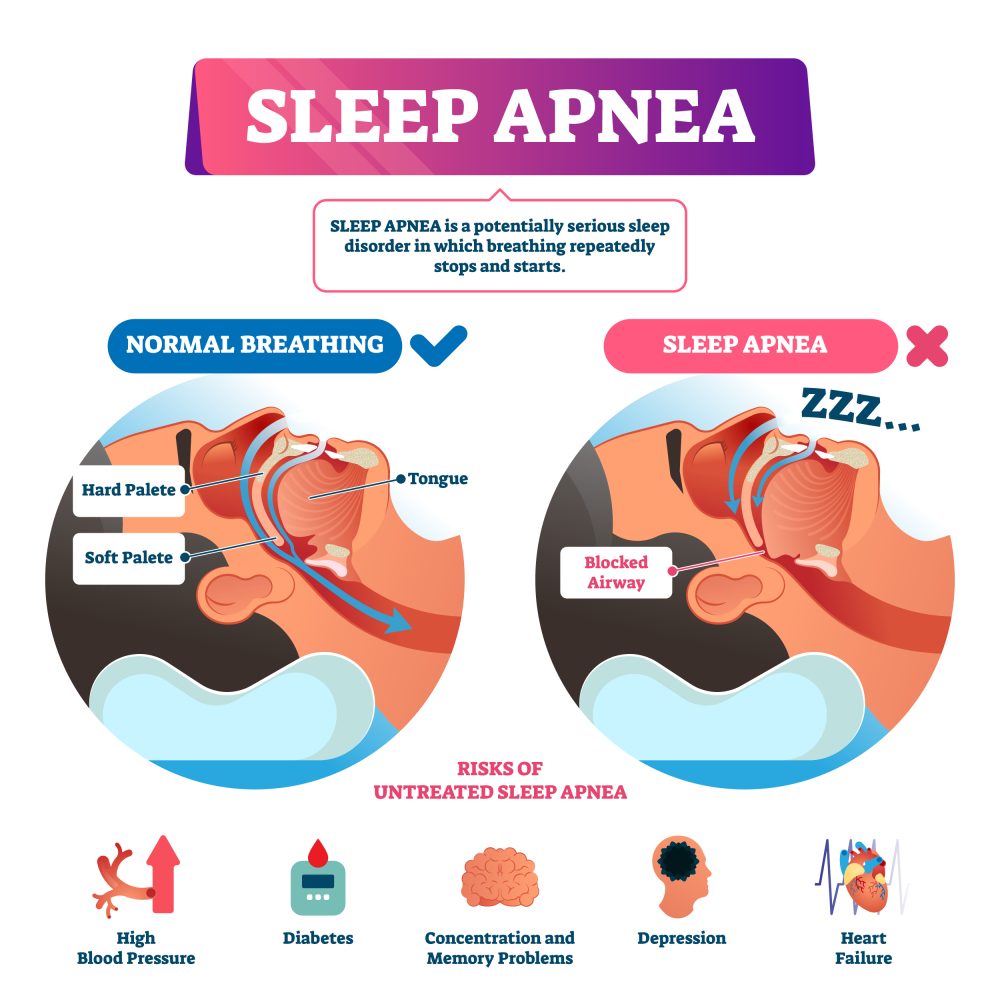
You are going to see a lot more about this topic if you watch the news each morning or evening. Sleep apnea is a huge problem in the United States and in many developed countries around the world. The problem seems to be a component of our population aging and becoming more obese with each next generation. As we become more sedentary and exercise less and less, we end up with fat deposition in both the tongue and pharynx which greatly affects our ability to breathe at night.
If you snore or wake up gasping in the middle of the night, you really should consider having at least a HST-Home Sleep Test- done to see if you are in the range of sleep apnea. In most cases, you would do the home test to get the basic indicators to see if there is more of a problem than meets the eye. The test will reveal a number called the AHI-Apnea Hypopnea Index. If that number is between 0 and 5, there is a very low risk of apnea. If the number is over 15, then it is usually labeled as moderate to severe apnea. AHI refers to how many times you either stopped or slowed breathing each hour of the night.
The problem with sleep apnea is that your brain does not get enough oxidation to function properly. Often this can manifest as a morning headache. Other manifestations of apnea include cardiovascular disease, high blood pressure, stroke, diabetes and even some cancers. When the brain and body do not receive proper oxygen supply, systems in the body begin to shut down. This is when disease processes can set in and now you have to deal with daily meds for diabetes or high blood pressure. Many times, some of these meds prevent the good, deep sleep that we need for better health. Painkillers are notorious for allowing us to fall asleep, yet they prevent the deeper, restorative sleep that is critical to good health.
So, what are some of the warning signs that you might have sleep apnea? One clear sign of potential OSA (Obstructive Sleep Apnea) is waking up with a headache regularly. This oftentimes means that your brain is not getting enough oxygen and it lets you know by making your head hurt when you first wake up. This is serious stuff – deal with it. Other indicators include restless legs and even gasping for air in the middle of the night. Your brain jolts you into waking up so that you can breathe and get some oxygen into the body. Other signs include waking with a dry mouth or even a sore throat.
A really strong sign of OSA is excessive daytime sleepiness. Again, your body is warning you of a potential problem and you really need to listen. Another symptom is trouble focusing during the day. As you can see, OSA is a serious problem and it’s wise to deal with it. Get the proper help you need from someone who understands sleep apnea. Please call our team in Falls Church, Virginia to schedule a visit with Dr. Brown. Call 703-821-1103 today!
